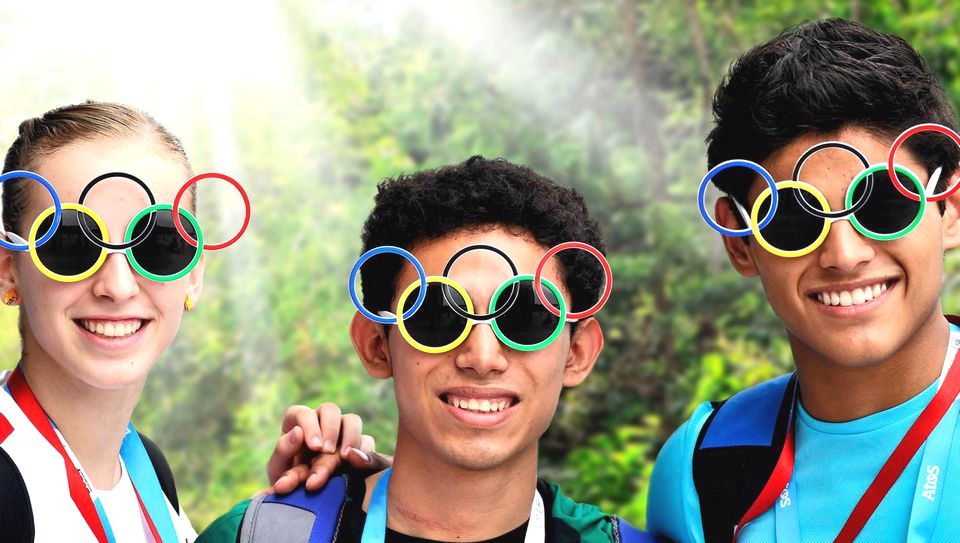
The Executive Board (EB) of the International Olympic Committee (IOC) has proposed a new strategic roadmap, Olympic Agenda 2020+5, to the upcoming IOC Session. It consists of 15 recommendations. The new roadmap follows Olympic Agenda 2020 and will guide the work of the IOC and the Olympic Movement for the next five years. Olympic Agenda 2020+5 will be submitted to the IOC Members for discussion and adoption at the 137th IOC Session in March this year. The title, Olympic Agenda 2020+5, has been chosen to reflect the fact that this new roadmap is the successor to Olympic Agenda 2020 and will guide the work of the IOC and the Olympic Movement until 2025.
Olympic Agenda 2020+5 builds on the results of Olympic Agenda 2020 which, in the six years since it was adopted in December 2014, has had a profound impact. It has strengthened the IOC and the Olympic Movement by introducing changes intended to make the Olympic Games fit for the future; safeguarded the Olympic values; and strengthened the role of sport in society. These achievements have laid solid foundations for the future (see IOC press release from 11 December 2020 and the full Closing Report of Olympic Agenda 2020).
Now, as the world continues to battle the global health crisis and its likely consequences for society at large, the IOC and the Olympic Movement need to seize on the successes of Olympic Agenda 2020 and continue to drive change for tomorrow.
The 15 recommendations that make up Olympic Agenda 2020+5 have been developed though an inclusive and collaborative process. They are based on key trends that have been identified as likely to be decisive in the post-coronavirus world. They are also areas where sport and the values of Olympism can play a key role in turning challenges into opportunities.
The key trends include:
– the need for greater solidarity within and among societies;
– the growth in digitalisation, while keeping in mind the need to expand digital capability to the currently digitally underserved;
– the urgency of achieving sustainable development;
– the growing demand for credibility, both of organisations and institutions; and
– the need to build resilience in the face of the financial and economic consequences that will result from the COVID-19 pandemic and which will influence priority-setting among governments and enterprises
Each of the 15 recommendations, which have been inspired by these trends, are tangible with key deliverables. The recommendations call upon the IOC and the Olympic Movement to:
– Strengthen the uniqueness and the universality of the Olympic Games
– Foster sustainable Olympic Games
– Reinforce athletes’ rights and responsibilities
– Continue to attract best athletes
– Further strengthen safe sport and the protection of clean athletes
– Enhance and promote the Road to the Olympic Games
– Coordinate the harmonisation of the sports calendar
– Grow digital engagement with people
– Encourage the development of virtual sports and further engage with video gaming communities
– Strengthen the role of sport as an important enabler for the UN Sustainable Development Goals
– Strengthen the support to refugees and populations affected by displacement
– Reach out beyond the Olympic community
– Continue to lead by example in corporate citizenship
– Strengthen the Olympic Movement through good governance
– Innovate revenue generation models
Commenting on Olympic Agenda 2020+5, IOC President Thomas Bach explained: “When we adopted Olympic Agenda 2020 in 2014, we did so under the adage of ‘change or be changed’. This still holds true today. The world around us has continued to evolve. Nothing illustrates this better than the ongoing global COVID-19 pandemic and its consequences for society. As challenging as the circumstances may appear right now, if we draw the right conclusions, we can turn these into opportunities. To do so, we must address this future environment without delay. We need to carry forward Olympic Agenda 2020. This is why we have developed Olympic Agenda 2020+5 and its recommendations with the IOC Executive Board and based on the feedback we received from stakeholders following the Olympism and Corona messages.”
The IOC EB has also finalised the Closing Report of Olympic Agenda 2020. This report describes in detail each of the 40 recommendations of Olympic Agenda 2020, the different activities carried out to implement them, and their impacts on the IOC and the Olympic Movement.
The EB concluded that 88 percent of the recommendations have now been achieved. This represents a slight increase from December when the EB determined that 85 per cent had been achieved. This increase demonstrates that Olympic Agenda 2020 is an ongoing process. The changes it introduced are continuing to evolve and will carry on having an impact going forward.
The Closing Report of Olympic Agenda 2020 will also be submitted to the IOC Session in March for final approval.





